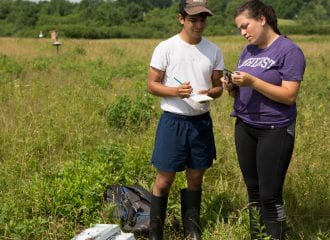Our role as biologists in building knowledge about the natural world relies on the ability to convey our results in a concise and meaningful way. Upon completion of a particular line of investigation, we publish our findings in peer-reviewed journals to receive feedback from colleagues with similar expertise (peer review) and add to the body of knowledge about a topic.

Writing in the sciences typically follows a specific format and accepted style of presenting information which likely will be different from what you have seen elsewhere. While reading and writing in the sciences can be challenging initially, having a standard format makes material accessible and provides a means for readers to quickly obtain the information required. Sharing information in this way allows us to make progress in the field and build on previous discoveries!
Developing proficiency in scientific writing and reading are vital skills, regardless of the field you choose to pursue upon graduation. When writing scientifically, you must use higher order processes to be able to analyze data, interpret your findings, critique your own and prior work, and draw connections to how your study contributes to larger frameworks in biology. This type of critical thinking is imperative to progress in all academic endeavors and success in a variety of fields including biology, medicine and business.
To learn more about scientific writing see:
The Science of Scientific Writing in American Scientist
Short Guide to Scientific Writing from Functional Ecology







